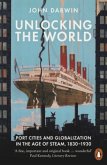Iconoclasm: Rejecting the past is a warning bell, an alarm, alerting readers to the threat against the tolerance and openness of democratic society. Iconoclasm, the breaking of images, is part of our history - from the destruction of religious images in early Christianity to today's toppling of statues of Confederate generals and slave traders. Images, buildings and objects that violate religious or ideological beliefs must be destroyed. Those who carry out such purges - iconoclasts - are convinced they are carrying out an act of purification. The past has been turned upside down in a desire to start over from the very beginning. The different contributions in this translation of the anthology Iconoclasm: Rejecting the past make the consequences crystal-clear. Not just invaluable cultural treasures but also human lives are lost when fanaticism has free rein. We saw this when the Islamic State destroyed museum artefacts that were thousands of years old, when Mao's Red Guards burned books and persecuted people who did not share their beliefs during China's Cultural Revolution, or when the Russian Bolsheviks dynamited churches and desecrated icons. There are countless examples of the damage these destructive forces have wrought over the centuries. The battle cry of iconoclasm, which is so strong today, demonstrates its continued appeal.








